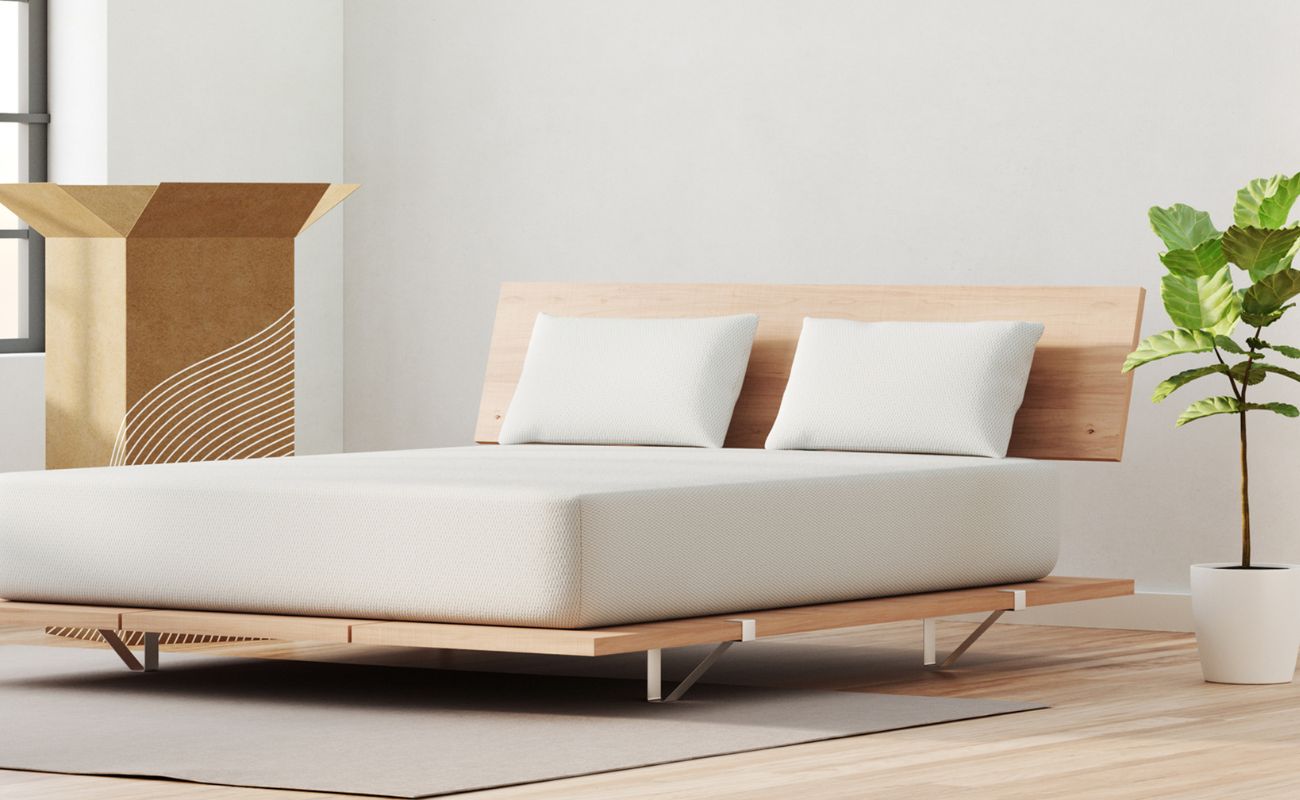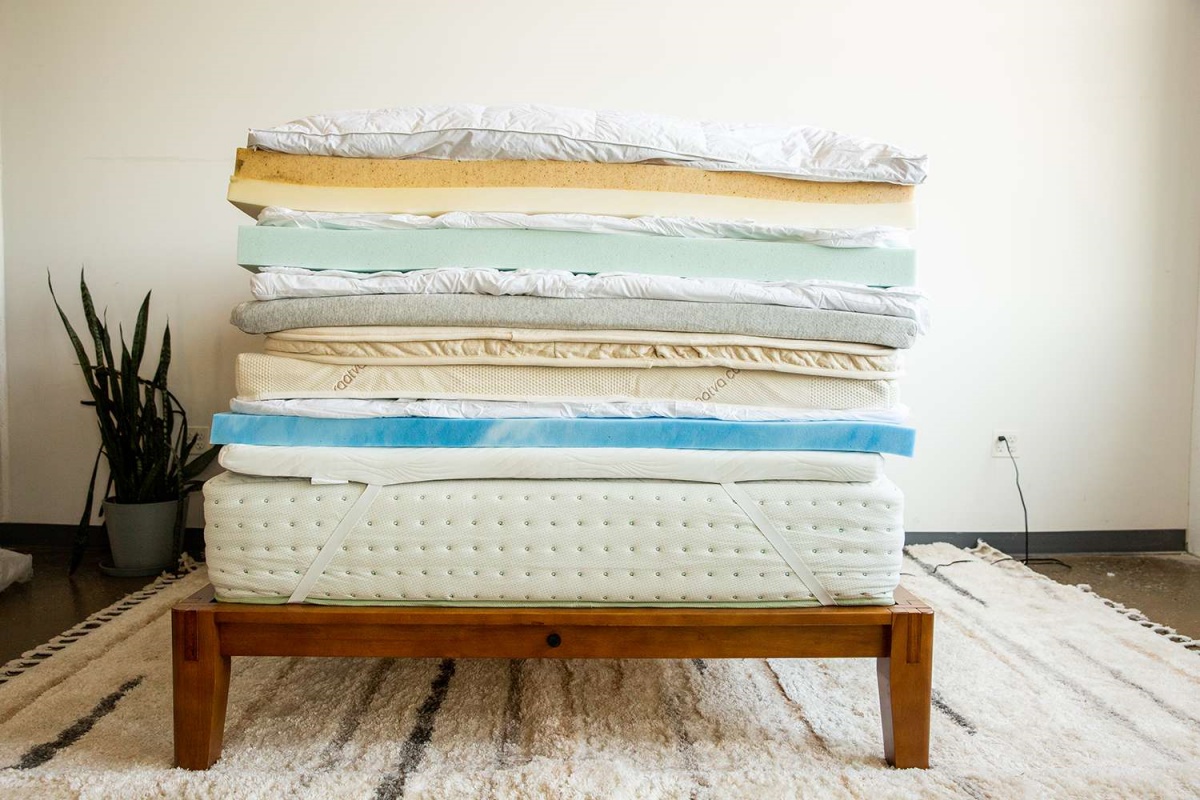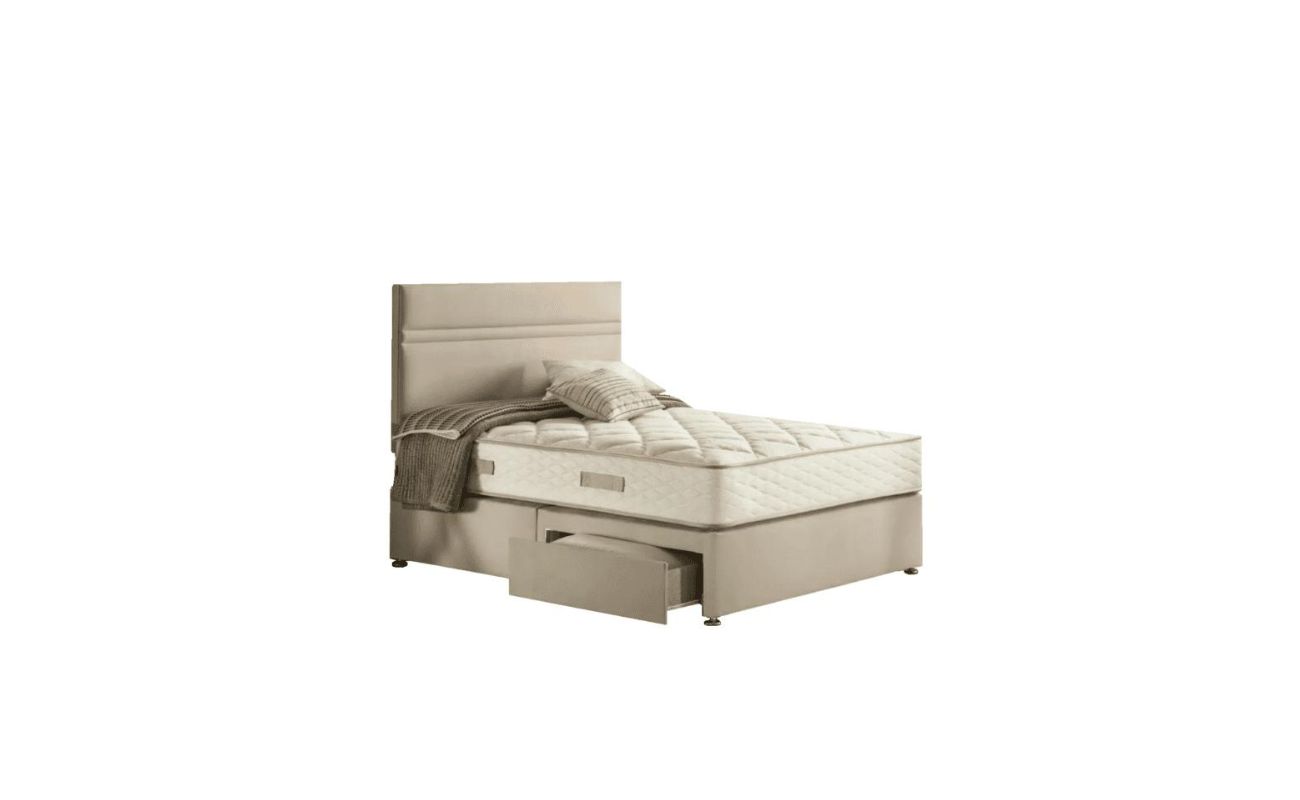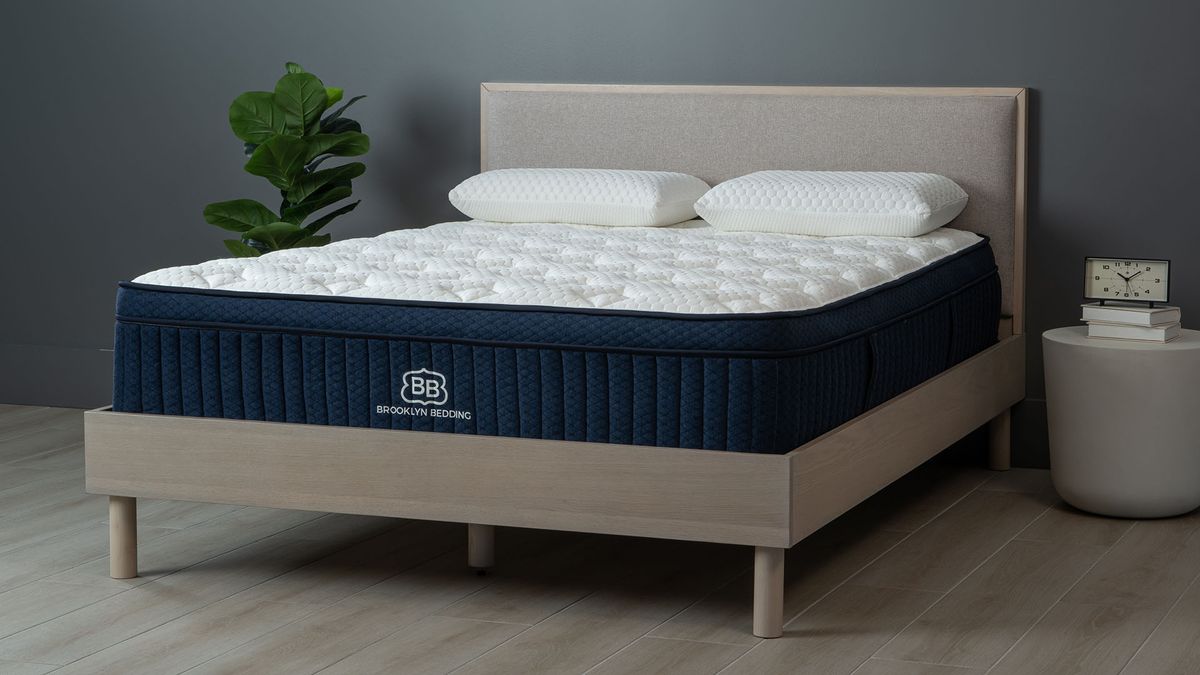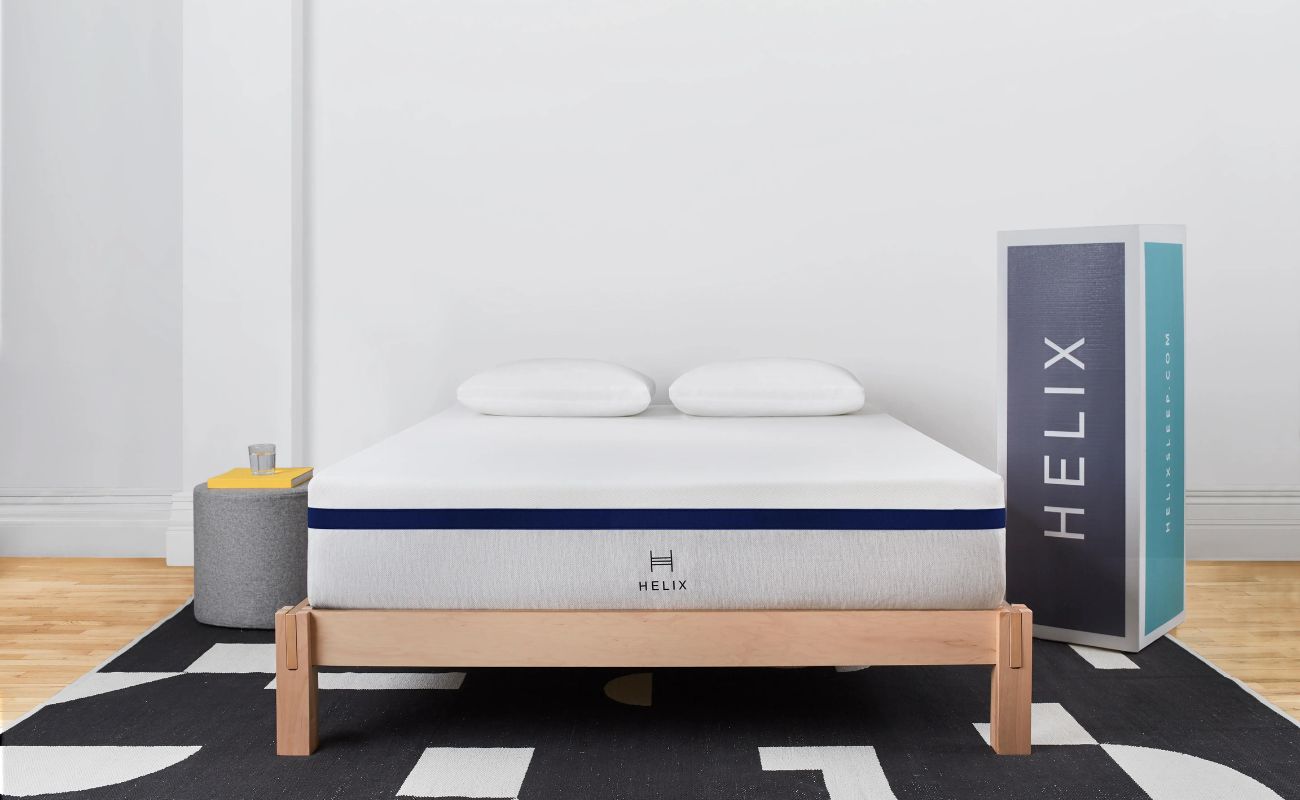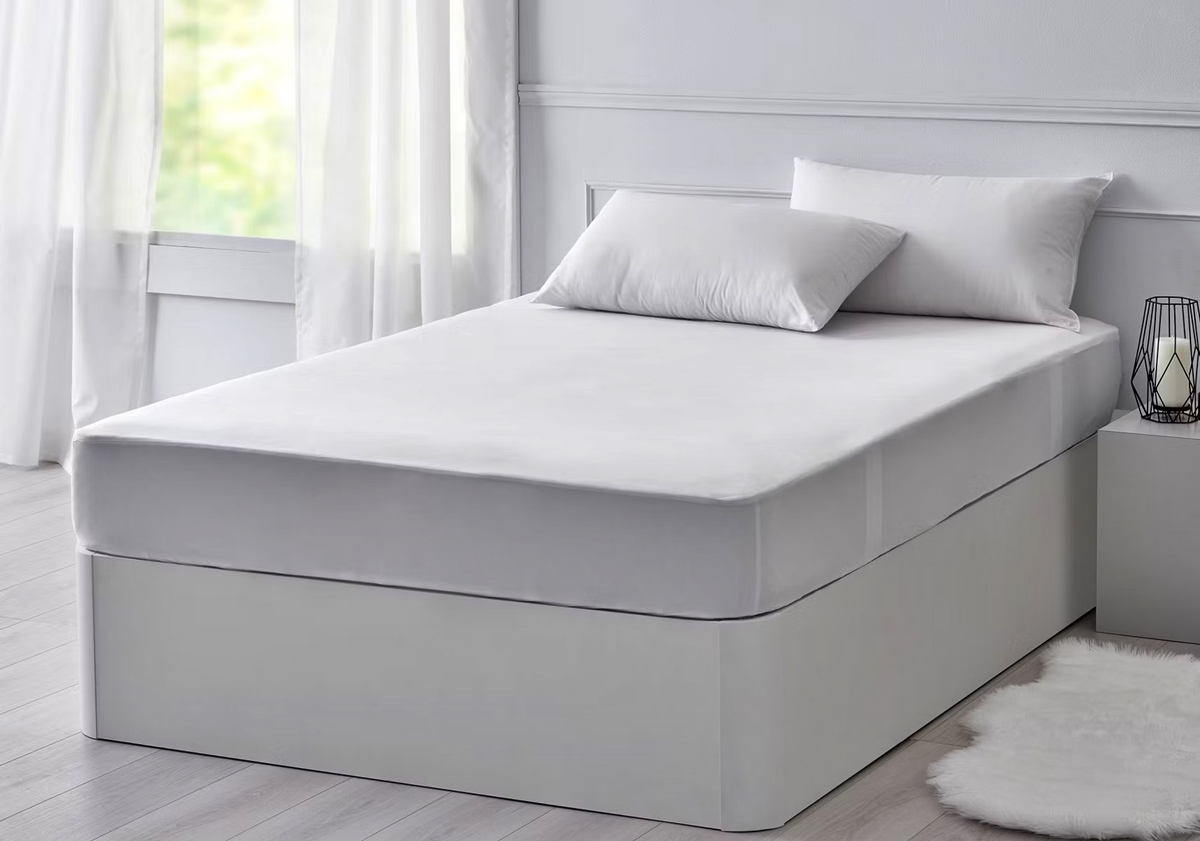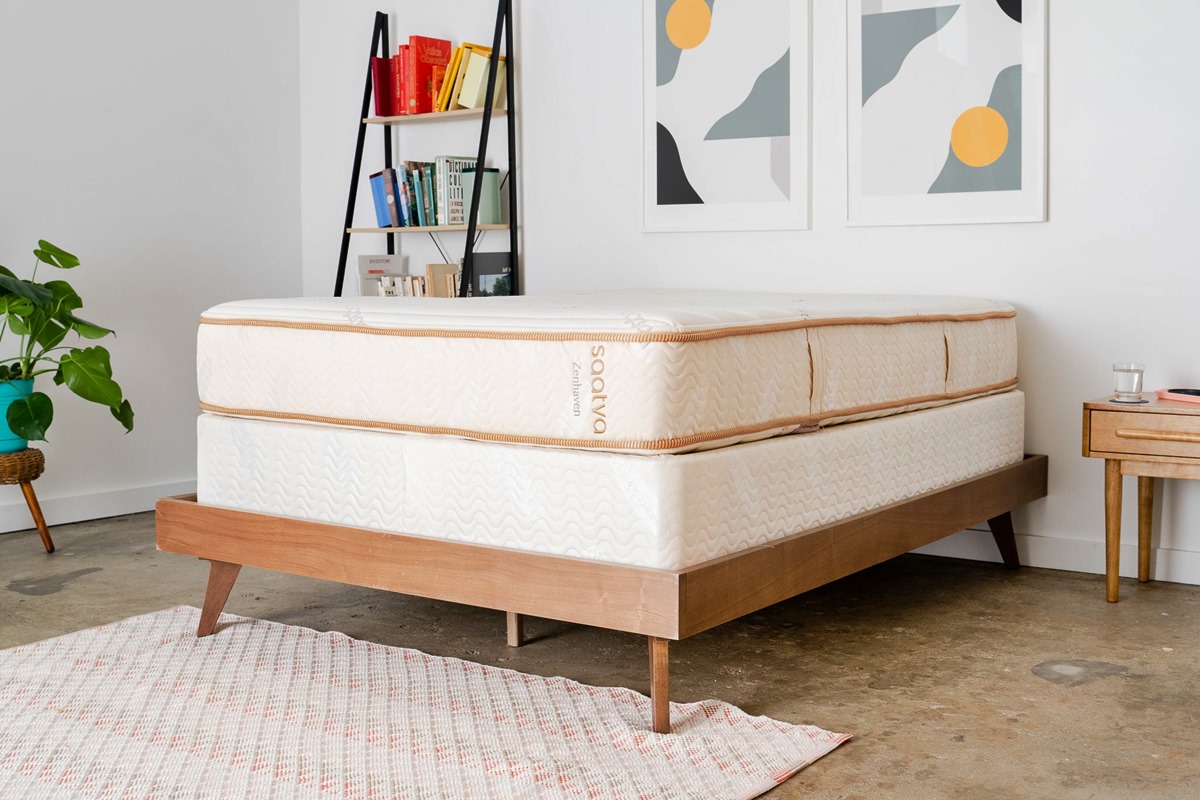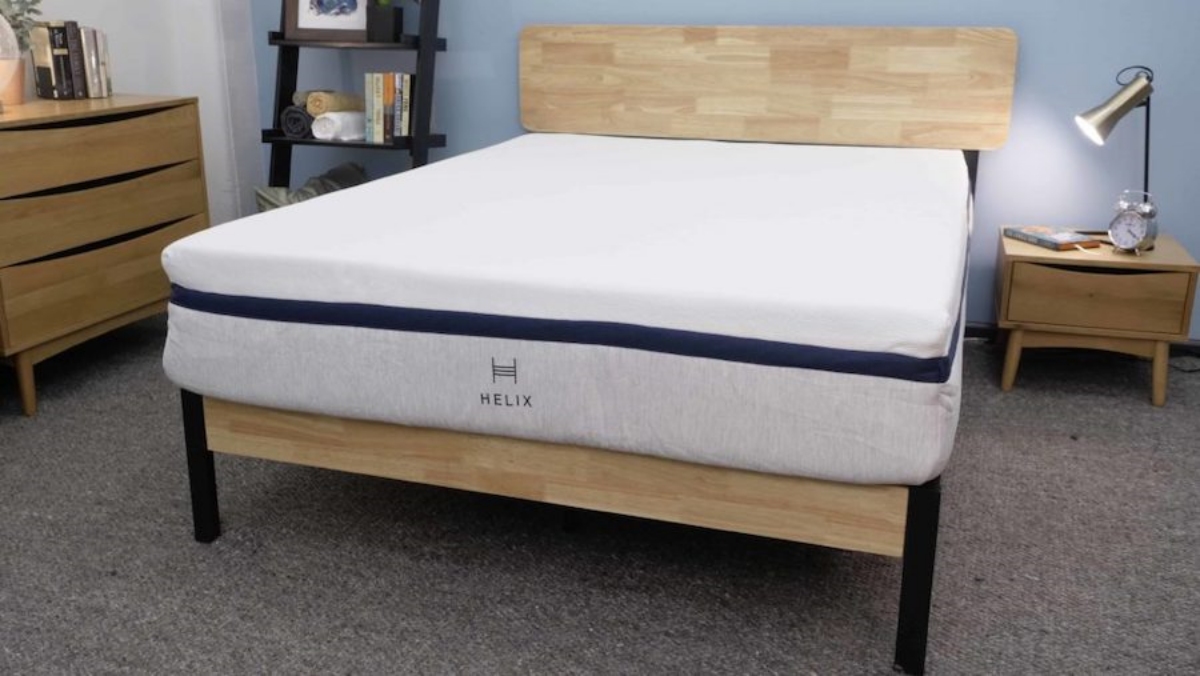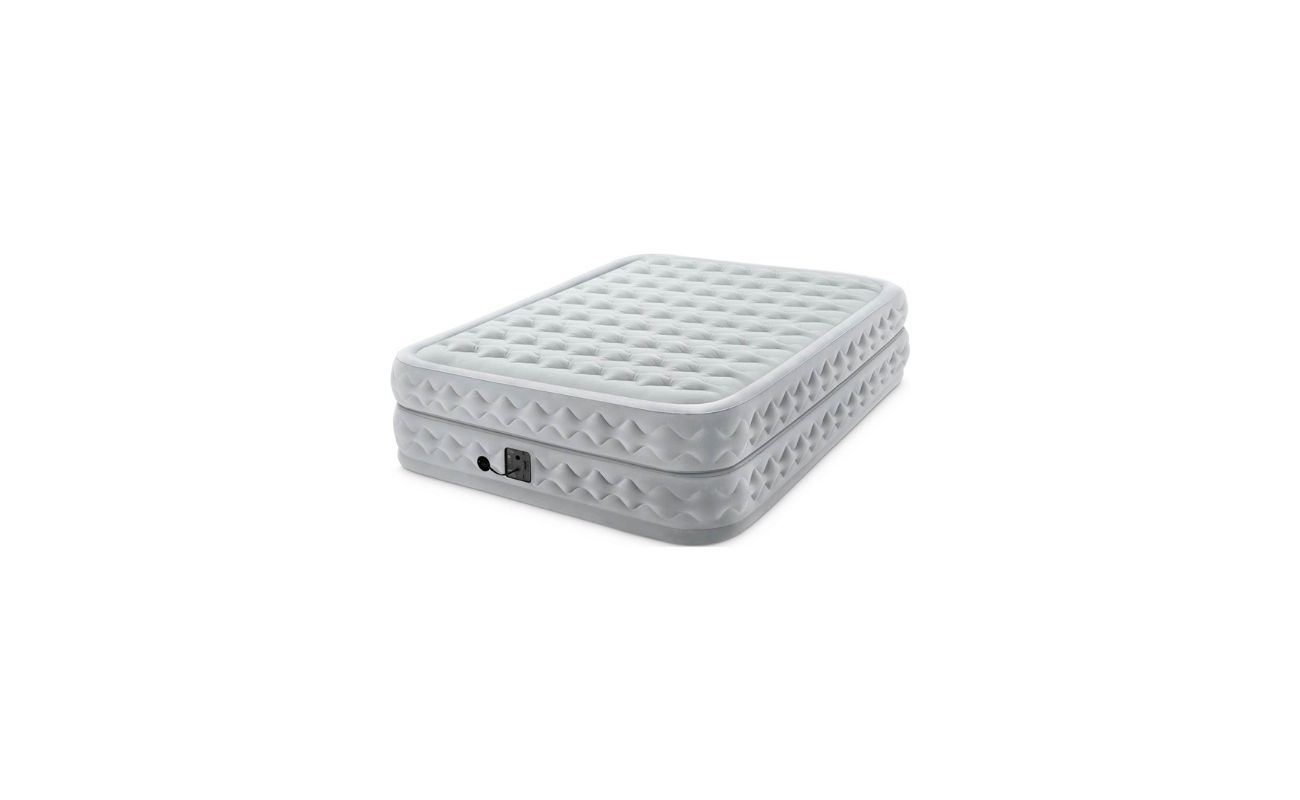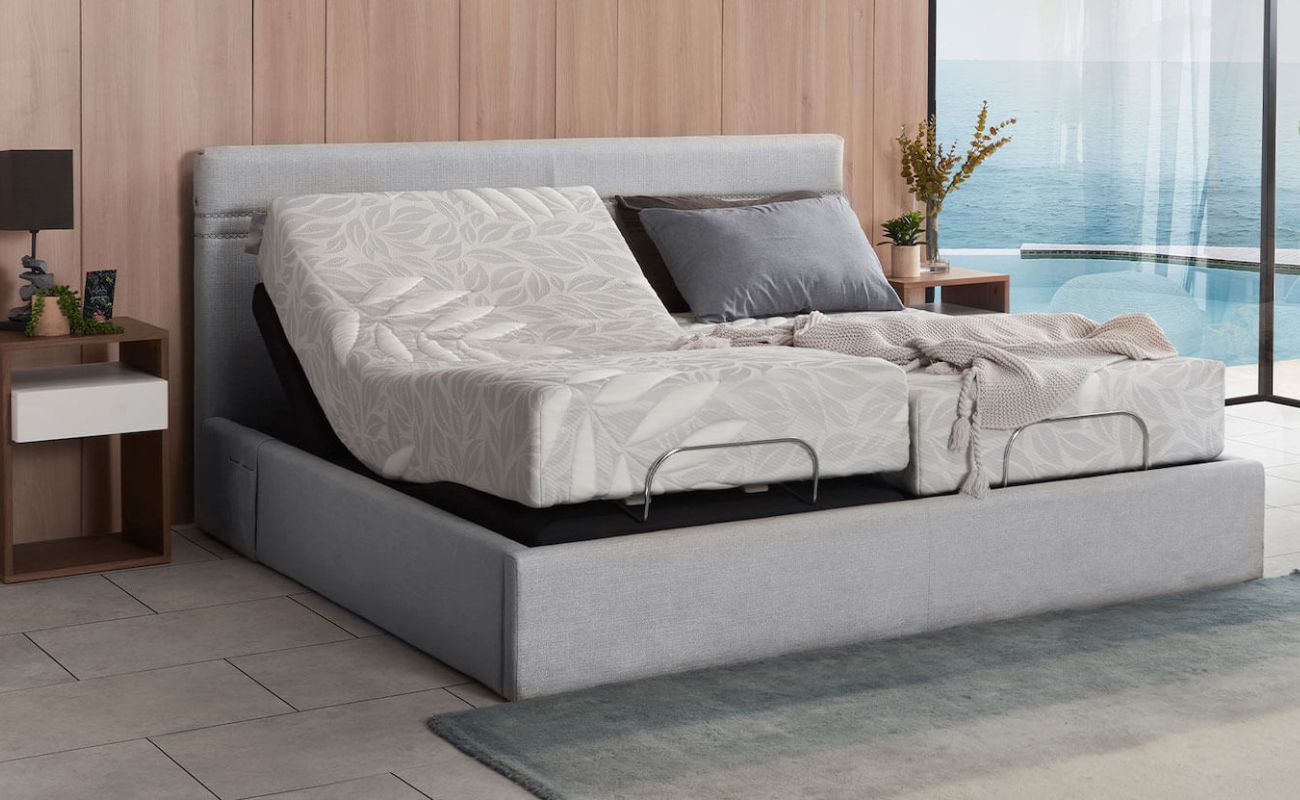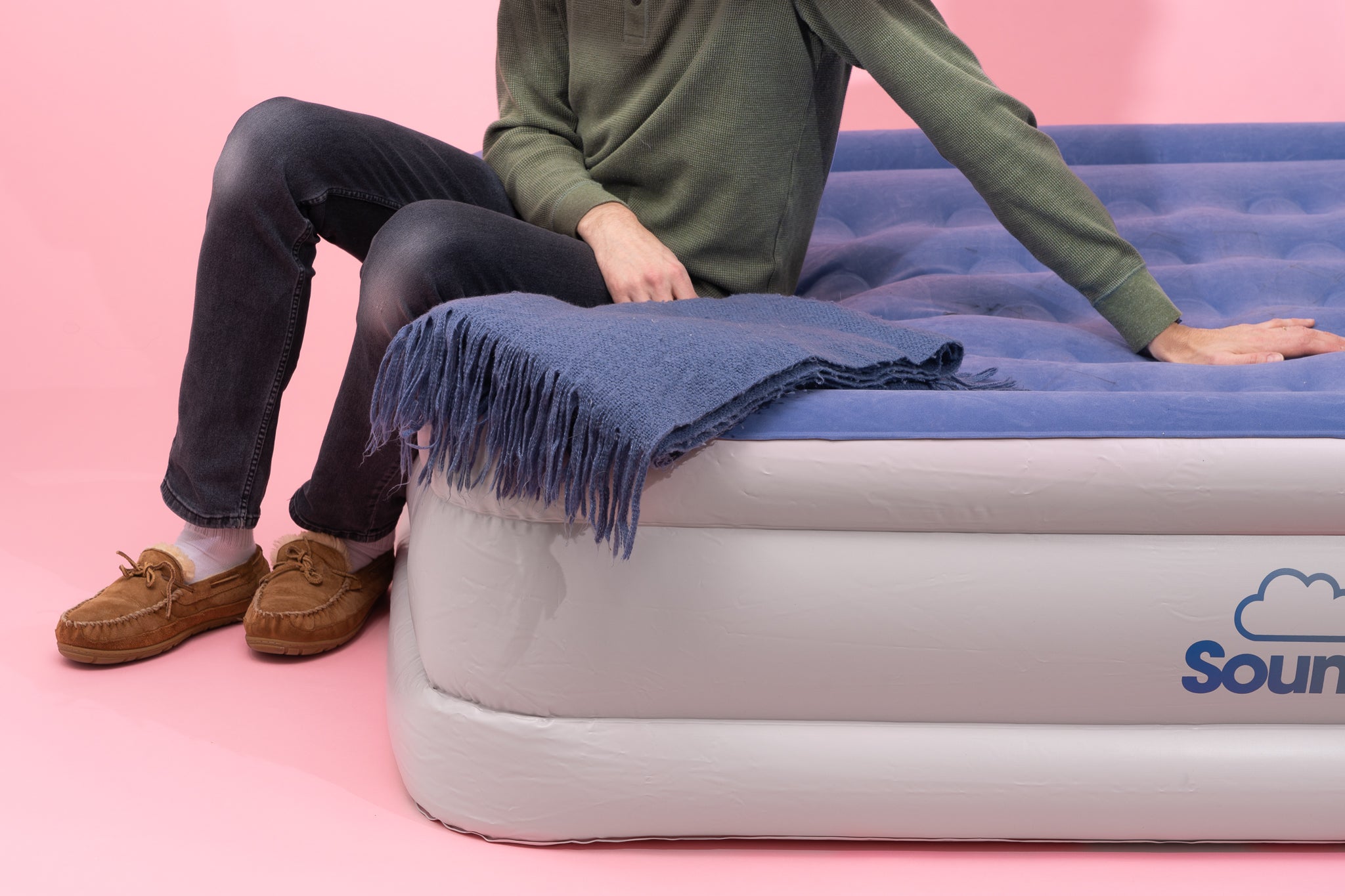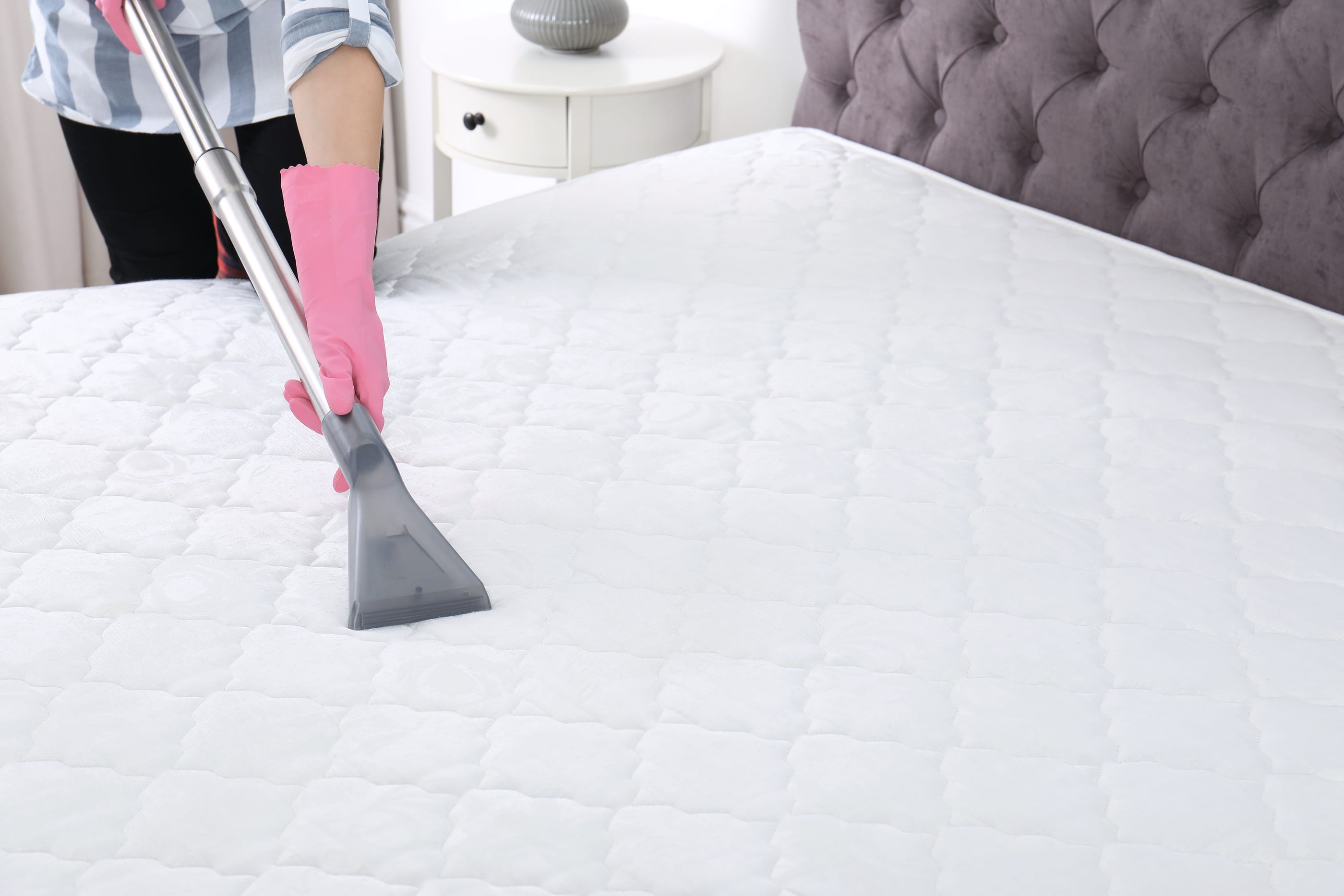Home>Furniture>Bedroom Furniture>What Is The Best Mattress For Scoliosis
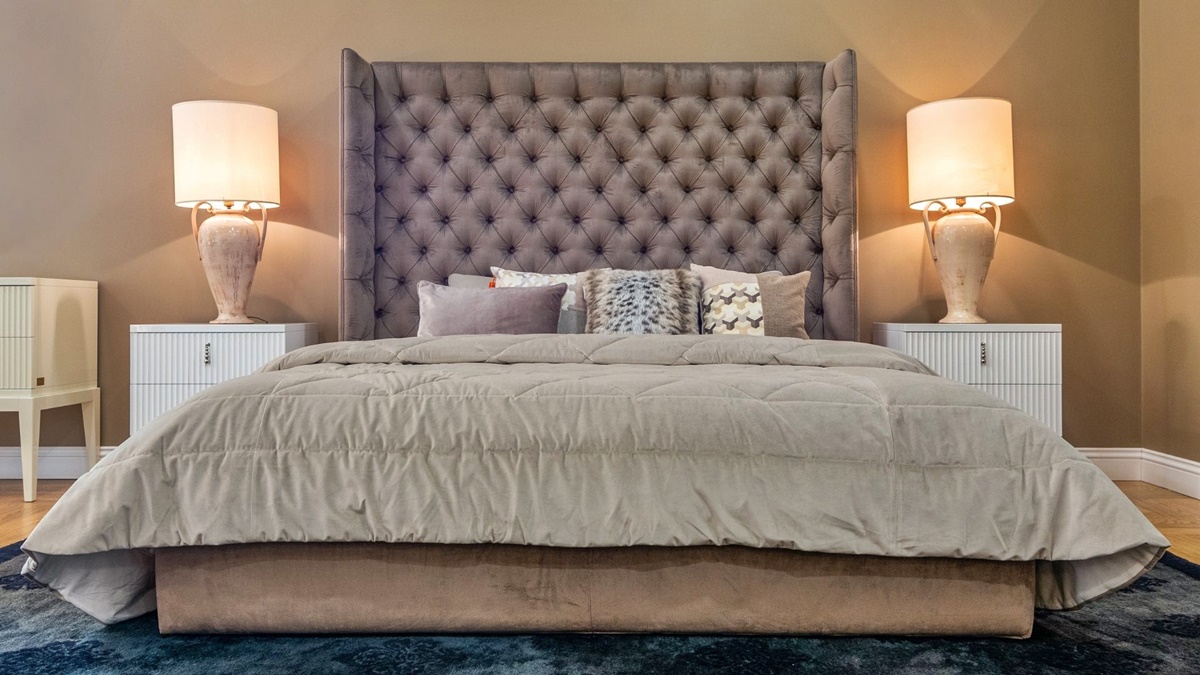

Bedroom Furniture
What Is The Best Mattress For Scoliosis
Modified: November 1, 2024
Discover the best bedroom furniture for Scoliosis and find the perfect mattress to support your spine and enhance your sleep quality. Improve your comfort and relieve pain today!
(Many of the links in this article redirect to a specific reviewed product. Your purchase of these products through affiliate links helps to generate commission for Storables.com, at no extra cost. Learn more)
Introduction
Welcome to our comprehensive guide on finding the best mattress for individuals with scoliosis. Scoliosis is a condition that affects the curvature of the spine, often resulting in discomfort and back pain. Choosing the right mattress is essential for providing the necessary support and proper spinal alignment to alleviate symptoms and promote a restful night’s sleep.
Whether you’re personally dealing with scoliosis or you’re seeking a mattress for a loved one, we’re here to help you understand the importance of selecting the right mattress and provide insights into various types of mattresses that can be beneficial for scoliosis sufferers. Let’s dive in and explore the factors to consider when choosing a mattress, as well as the different options available in the market.
Key Takeaways:
- Choosing the right mattress for scoliosis is crucial for alleviating discomfort, promoting spinal alignment, and improving sleep quality. Factors such as firmness, sleeping position, and material should be carefully considered.
- Memory foam, latex, hybrid, and innerspring mattresses, as well as adjustable beds, offer unique benefits for individuals with scoliosis. Consulting with healthcare professionals and implementing sleep tips can further enhance sleep quality.
Read more: What Is The Best Luxury Mattress
Understanding Scoliosis
Scoliosis is a musculoskeletal disorder characterized by an abnormal curvature of the spine. While the spine naturally has slight curves, scoliosis causes the spine to curve sideways in an S or C shape. This condition can lead to uneven shoulders, hips, and an asymmetrical appearance of the back.
Scoliosis can develop at any age, but it often emerges during the growth spurt just before puberty. In most cases, the exact cause of scoliosis is unknown, and the condition is referred to as idiopathic scoliosis. However, it can also be caused by birth defects, spinal injuries, or neuromuscular conditions.
One of the primary concerns for individuals with scoliosis is the discomfort and back pain that can result from an imbalance in the spine’s alignment. This misalignment can put strain on the muscles and ligaments surrounding the spine, leading to pain and stiffness.
While scoliosis cannot typically be fully corrected without medical intervention, finding the right mattress can provide relief and support for a better night’s sleep. A well-designed mattress can help alleviate pressure points, promote proper spinal alignment, and reduce pain and discomfort for individuals with scoliosis.
It’s essential to note that the severity and type of scoliosis may vary from person to person. Therefore, it is recommended to consult with a healthcare professional or orthopedic specialist for an accurate diagnosis and tailored treatment plan.
Importance of Choosing the Right Mattress
When you have scoliosis, choosing the right mattress becomes crucial to ensure proper support and alleviate discomfort. Here are some reasons why selecting the right mattress is essential:
- Spinal Alignment: A well-designed mattress can help maintain proper spinal alignment by contouring to the natural curves of your body. This alignment is crucial for individuals with scoliosis, as it helps distribute weight evenly and reduces pressure on the spine.
- Pressure Relief: Scoliosis can cause pressure points and pain in specific areas of the body. The right mattress will have adequate cushioning and support to relieve pressure on these areas, allowing for better blood circulation and reduced pain.
- Support: Scoliosis can lead to an imbalance in the spine, which requires additional support to alleviate discomfort. A mattress that offers appropriate support can help maintain a neutral position for the spine, reducing strain on the muscles and ligaments.
- Comfort: Comfort is essential for a good night’s sleep. A mattress that meets your comfort preferences can help you relax and fall asleep faster. It’s important to find a balance between support and comfort when selecting a mattress for scoliosis.
- Quality Sleep: A comfortable and supportive mattress can significantly enhance the quality of your sleep. With better sleep, you can wake up feeling refreshed and rejuvenated, ready to tackle the day ahead.
Keep in mind that everyone’s needs and preferences are different, and what works for one person may not work for another. It’s crucial to consider your specific symptoms, the severity of your scoliosis, and any other factors that may impact your sleep quality when choosing a mattress.
In the following sections, we’ll explore the factors you should consider when selecting a mattress for scoliosis, as well as the different types of mattresses that can provide the necessary support and comfort for individuals with this condition.
Factors to Consider When Selecting a Mattress for Scoliosis
Choosing the right mattress for scoliosis involves considering several factors to ensure optimal comfort and support. Here are some key factors to keep in mind:
- Firmness: When it comes to scoliosis, finding the right level of firmness is crucial. A mattress that is too soft may not provide adequate support, while a mattress that is too firm can put excessive pressure on certain areas of the spine. Opt for a mattress with medium firmness that offers a balanced combination of support and comfort.
- Sleeping Position: Your preferred sleeping position plays a role in determining the ideal mattress for you. Back sleepers generally benefit from a medium-firm mattress that supports the natural curvature of the spine. Side sleepers may find more comfort with a softer mattress that conforms to their body’s contours. Stomach sleepers typically require a firmer mattress to prevent excessive sinking.
- Spinal Alignment: Look for a mattress that promotes proper spinal alignment by contouring to the curves of your body. This helps alleviate pressure points and ensures that your spine remains in a neutral position throughout the night.
- Material: Different mattress materials offer varying levels of support and comfort. Memory foam and latex mattresses are known for their contouring ability and pressure relief. Hybrid mattresses combine the benefits of different materials, while innerspring mattresses provide sturdy support. Consider your preferences and needs when selecting the right material for your mattress.
- Edge Support: Good edge support ensures that you can utilize the entire sleeping surface without feeling like you’ll roll off the bed. It is especially important if you tend to sit or sleep near the edges of the mattress.
- Motion Isolation: If you share your bed with a partner, motion isolation is an important consideration. A mattress with good motion isolation absorbs movement, allowing you to sleep undisturbed even if your partner tosses and turns throughout the night.
- Durability: A durable mattress is crucial for long-term comfort and support. Look for mattresses made from high-quality materials that are designed to last, ensuring that you get the most out of your investment.
By considering these factors, you can narrow down your options and find a mattress that suits your specific needs and provides optimal comfort and support for your scoliosis.
Now that we’ve discussed the essential factors to consider, let’s explore the different types of mattresses that are known to be suitable for individuals with scoliosis.
Types of Mattresses Suitable for Scoliosis
When it comes to mattresses suitable for individuals with scoliosis, there are several options available, each with its own unique benefits. Let’s take a closer look at the types of mattresses that can provide the necessary support and comfort for those dealing with scoliosis:
- Memory Foam Mattresses: Memory foam mattresses are known for their ability to contour to the body, providing excellent support and pressure relief. They conform to the curves of the spine, promoting proper alignment and reducing discomfort. Memory foam mattresses also have motion isolation properties, ensuring that movements from a sleeping partner are minimized. Look for a medium-firm memory foam mattress that offers the right balance of support and comfort.
- Latex Mattresses: Latex mattresses are another popular option for individuals with scoliosis. They offer a natural, responsive, and supportive sleep surface that adapts to your body’s contours. Latex mattresses are durable, hypoallergenic, and provide excellent pressure relief, making them a suitable choice for those seeking comfort and support for scoliosis.
- Hybrid Mattresses: Hybrid mattresses combine the features of different materials, typically with an innerspring core and comfort layers of memory foam or latex. This combination provides the benefits of both support and contouring. Hybrid mattresses offer excellent support for spinal alignment while relieving pressure points, making them a versatile option for individuals with scoliosis.
- Innerspring Mattresses: Innerspring mattresses have a supportive core made up of metal coils, providing a sturdy sleep surface. While they may not offer as much contouring as memory foam or latex mattresses, they can still provide adequate support for individuals with scoliosis. Look for a medium-firm innerspring mattress that offers sufficient cushioning in the comfort layers.
- Adjustable Beds: While not a mattress per se, adjustable beds can be highly beneficial for individuals with scoliosis. These beds allow you to adjust the position of the head or foot of the mattress, providing customizable support and helping to relieve pressure on the spine. Adjustable beds can be paired with various mattress types to enhance comfort and improve sleep quality.
Remember, the best mattress for scoliosis ultimately depends on your individual needs, preferences, and the severity of your condition. It’s always a good idea to try out different mattresses and speak with healthcare professionals or orthopedic specialists for personalized guidance.
Now that you have a good understanding of the mattress options available, let’s explore some tips for sleeping with scoliosis to further improve your overall sleep quality and comfort.
Read more: What Is The Best IKEA Mattress
Memory Foam Mattresses
Memory foam mattresses are a popular choice for individuals with scoliosis due to their ability to contour to the body and provide exceptional support. These mattresses are made from viscoelastic foam, which reacts to body heat and pressure, allowing it to mold to your body’s shape.
Here are some key benefits of memory foam mattresses for individuals with scoliosis:
- Pressure Relief: Memory foam mattresses excel at relieving pressure points by distributing weight evenly across the sleeping surface. This is particularly beneficial for individuals with scoliosis, as it helps reduce discomfort and pain caused by heightened pressure on specific areas of the body.
- Spinal Alignment: Memory foam mattresses are designed to conform to the natural curves of the body, providing optimal spinal alignment. This helps keep the spine in a neutral position, reducing strain on the muscles and promoting better sleep posture.
- Motion Isolation: One of the standout features of memory foam mattresses is their ability to isolate motion. This means that any movement or tossing and turning from a sleeping partner is absorbed by the mattress, minimizing disturbances throughout the night.
- Customized Comfort: Memory foam mattresses come in various firmness levels, allowing you to find one that suits your preferred level of comfort. Medium-firm mattresses are generally recommended for individuals with scoliosis, as they offer a good balance of support and cushioning.
- Durability: Memory foam mattresses are known for their longevity. High-quality memory foam mattresses can maintain their shape and support for many years, ensuring that you get a good return on your investment.
One of the potential drawbacks of memory foam mattresses is that they can retain heat. This may not be ideal for individuals who tend to sleep hot. However, many memory foam mattresses now come with cooling technologies, such as gel-infused foam or open-cell foam, to mitigate heat retention and promote a cooler sleeping experience.
When choosing a memory foam mattress, consider factors such as thickness, density, and the quality of the foam. Thicker mattresses generally offer better support, while higher-density foam provides more durability. It’s also important to look for mattresses that come with a suitable warranty and trial period to ensure your satisfaction.
Overall, memory foam mattresses offer excellent support, pressure relief, and comfort for individuals with scoliosis. However, it’s essential to understand that everyone’s needs and preferences are unique, so it’s always recommended to try out different mattresses and consult with healthcare professionals or orthopedic specialists for personalized advice.
Next, we’ll explore another type of mattress suitable for scoliosis – latex mattresses.
Look for a mattress that provides good support and pressure relief, such as a memory foam or hybrid mattress. It’s important to find a mattress that keeps your spine aligned and reduces discomfort.
Latex Mattresses
Latex mattresses are a popular choice for individuals with scoliosis due to their natural responsiveness and ability to contour to the body’s curves. These mattresses are made from latex foam, which is derived from the sap of rubber trees.
Here are some key benefits of latex mattresses for individuals with scoliosis:
- Pressure Relief: Latex mattresses offer excellent pressure relief by gently conforming to the body’s contours. This helps alleviate pressure points and promotes better blood circulation, reducing discomfort for individuals with scoliosis.
- Support: Latex mattresses provide optimal support for the spine, helping to maintain proper alignment. The buoyancy of latex foam ensures that your body weight is evenly distributed, reducing strain on the back and promoting a more comfortable sleep.
- Durability: Latex mattresses are known for their durability. They are resistant to sagging and can maintain their shape and support for many years, making them a long-lasting investment for individuals with scoliosis.
- Natural and Hypoallergenic: Latex is a natural material that is resistant to dust mites, mold, and allergens, making latex mattresses an excellent choice for individuals with allergies or sensitivities. They are also free from harmful chemicals commonly found in synthetic mattresses.
- Temperature Regulation: Latex mattresses have natural breathability, allowing for better airflow and heat dissipation. This helps regulate body temperature during sleep, preventing overheating or excessive sweating.
Latex mattresses come in different firmness options, ranging from soft to firm. For individuals with scoliosis, a medium-firm latex mattress is generally recommended, as it provides a good balance between support and comfort.
It’s important to note that there are two types of latex mattresses: Dunlop and Talalay. Dunlop latex is denser and slightly firmer, making it ideal for those who prefer a firmer sleep surface. Talalay latex undergoes additional processing to create a lighter and more buoyant feel, offering a softer sleep experience. Both types of latex mattresses can be suitable for individuals with scoliosis, depending on personal preference.
When shopping for a latex mattress, consider factors such as the thickness of the latex layer, the support core (if any), and the cover material. Additionally, look for mattresses that are certified by organizations such as Eco-Institut, Global Organic Latex Standard (GOLS), or the Global Organic Textile Standard (GOTS) to ensure the quality and purity of the latex used.
While latex mattresses offer many benefits for individuals with scoliosis, it’s essential to try out different mattresses and consult with healthcare professionals or orthopedic specialists to find the perfect fit for your specific needs and preferences.
Next, we’ll explore hybrid mattresses, which combine the features of different mattress types to provide a unique sleep experience for individuals with scoliosis.
Hybrid Mattresses
Hybrid mattresses are an excellent choice for individuals with scoliosis who are looking for a combination of support and comfort. These mattresses combine the benefits of different materials, typically with an innerspring core and comfort layers of memory foam, latex, or other specialized materials.
Here are some key benefits of hybrid mattresses for individuals with scoliosis:
- Support: The innerspring core of a hybrid mattress provides sturdy support, while the comfort layers offer contouring and pressure relief. This combination helps maintain proper spinal alignment and reduces discomfort associated with scoliosis.
- Pressure Relief: Hybrid mattresses usually include comfort layers made of memory foam or latex, which conform to the body’s curves to alleviate pressure points. This can be particularly beneficial for individuals with scoliosis who may experience greater pressure on certain areas of the spine.
- Comfort: The combination of materials in hybrid mattresses results in a comfortable sleep surface. The plush cushioning of memory foam or latex, along with the responsive support offered by the innerspring core, creates a comfortable and supportive environment for individuals with scoliosis.
- Durability: Hybrid mattresses tend to be durable due to their sturdy support core. The combination of materials ensures longevity and helps resist sagging, offering lasting comfort and support for individuals with scoliosis.
- Temperature Regulation: Hybrid mattresses often have good breathability and airflow, thanks to the innerspring core. This helps regulate body temperature, preventing overheating during sleep and promoting a more comfortable sleep environment.
When choosing a hybrid mattress, consider factors such as the quality and thickness of the comfort layers, the gauge and type of the innerspring coils, and the overall design and construction. Each of these elements will contribute to the level of support, comfort, and durability provided by the mattress.
It’s important to note that hybrid mattresses can vary in their composition, with different combinations of materials and layer configurations. Some may have more memory foam for enhanced contouring, while others may have a thicker latex layer for a more responsive feel. It’s crucial to try out different hybrid mattresses and find the one that caters to your specific preferences and needs.
As with any mattress, it’s advisable to check for warranty information and trial periods when considering a hybrid mattress for scoliosis. This way, you can ensure that the mattress is suitable for you and provides the necessary support and comfort to alleviate discomfort and promote better sleep quality.
In the next section, we’ll explore the benefits and considerations of innerspring mattresses for individuals with scoliosis.
Innerspring Mattresses
Innerspring mattresses have been a popular choice for many years and continue to be a viable option for individuals with scoliosis. These mattresses are constructed with a support core made up of metal coils and are known for their bouncy feel and sturdy support.
Here are some key benefits of innerspring mattresses for individuals with scoliosis:
- Support: Innerspring mattresses offer excellent support for individuals with scoliosis. The coil system provides a sturdy foundation that helps maintain proper spinal alignment and reduces discomfort. Look for mattresses with a higher coil count for better support.
- Breathability: Innerspring mattresses have good airflow due to the open structure of the coil system. This promotes better temperature regulation during sleep and helps prevent overheating, which can be especially beneficial for individuals who tend to sleep hot.
- Edge Support: Innerspring mattresses typically have reinforced edges, providing stable support even when sitting or sleeping near the edge of the mattress. This can be beneficial for individuals with scoliosis who require additional stability and support.
- Durability: Innerspring mattresses are known for their durability, thanks to the robust coil system. When properly cared for, these mattresses can last for many years, offering consistent comfort and support for individuals with scoliosis.
- Firmness Options: Innerspring mattresses are available in a variety of firmness options, allowing individuals with scoliosis to choose the level of support that suits their preferences. Opting for a medium-firm or firm innerspring mattress can provide the necessary support for proper spinal alignment.
While innerspring mattresses offer several benefits, it’s important to note that they may not provide the same level of contouring and pressure relief as memory foam or latex mattresses. However, you can enhance the comfort of an innerspring mattress by adding a mattress topper made of memory foam or latex for additional cushioning and pressure relief.
When shopping for an innerspring mattress, consider factors such as coil gauge (which affects the firmness and durability), coil type (such as Bonnell, offset, or pocketed coils), and the overall thickness and quality of the mattress. These factors will influence the level of support and comfort provided by the mattress.
Keep in mind that personal preferences may vary, and it’s essential to try out different mattresses to find the ideal level of support and comfort for your specific needs and the severity of your scoliosis. Consulting with healthcare professionals or orthopedic specialists can also provide valuable insights and guidance in selecting the right mattress.
In the next section, we’ll explore the benefits of adjustable beds for individuals with scoliosis.
Read more: What Is The Best Mattress For Osteoarthritis
Adjustable Beds for Scoliosis
Adjustable beds can be an excellent option for individuals with scoliosis who are looking for customized support and comfort. These beds allow you to adjust the position of the head or foot of the mattress, providing various sleeping and resting positions to alleviate discomfort and reduce strain on the spine.
Here are some key benefits of adjustable beds for individuals with scoliosis:
- Customized Support: Adjustable beds allow you to find the most comfortable position for your body. By elevating the head or foot of the mattress, you can relieve pressure on specific areas of the spine, reducing discomfort associated with scoliosis.
- Improved Circulation: Adjusting the position of the mattress can help improve blood circulation, reducing swelling and promoting better overall health. This can be particularly beneficial for individuals with scoliosis who may experience circulation issues due to spinal misalignment.
- Pain Relief: Adjustable beds can provide targeted pain relief by allowing you to find the optimal sleeping position that alleviates pressure on the affected areas. By relieving pressure points, adjustable beds can help reduce pain and discomfort caused by scoliosis.
- Enhanced Comfort: Adjustable beds offer a range of sleeping positions, making it easier to find a comfortable position that suits your needs. Whether you prefer sleeping with your head slightly elevated or prefer to elevate your feet, an adjustable bed allows for personalized comfort that can greatly improve sleep quality.
- Additional Features: Many adjustable beds come with additional features such as built-in massage functions, USB ports for charging devices, and programmable memory settings. These added features can enhance comfort and convenience, making your sleep experience even more enjoyable.
In combination with the right mattress, an adjustable bed can provide optimal support and comfort tailored to your specific needs. The flexibility of an adjustable bed makes it suitable for individuals with varying degrees of scoliosis, as you can adjust the bed to your desired position and level of support.
When choosing an adjustable bed, consider factors such as the range of adjustability, ease of use, quietness of the motor, and the overall stability and durability of the bed frame. Additionally, ensure that the mattress you pair with the adjustable bed is compatible with its movement and flexibility.
While adjustable beds can be beneficial for individuals with scoliosis, it’s important to note that they may come at a higher price point compared to traditional beds. However, the benefits they provide, such as improved comfort, pain relief, and enhanced sleep quality, can be well worth the investment for individuals dealing with scoliosis.
Now that we’ve explored the different types of mattresses suitable for scoliosis, let’s take a look at some tips for sleeping with this condition to further enhance your sleep experience and overall well-being.
Tips for Sleeping with Scoliosis
When you have scoliosis, getting a good night’s sleep can be challenging. However, there are several tips and strategies you can implement to improve your sleep quality and reduce discomfort. Here are some tips for sleeping with scoliosis:
- Pillow Support: Use a supportive pillow that aligns your head and neck with your spine. This helps maintain proper spinal alignment while you sleep. Memory foam or contour pillows can be particularly beneficial for individuals with scoliosis as they provide targeted support.
- Mattress Firmness: Choose a mattress with medium-firm to firm support. This helps maintain a neutral spine position and reduces pressure on the curvature. Avoid mattresses that are too soft, as they may cause your body to sink and worsen discomfort.
- Positioning: Experiment with different sleeping positions to find the one that provides the most comfort. Back sleeping with a pillow under your knees, side sleeping with a pillow between your knees, or a reclined position in an adjustable bed can help alleviate pressure on the spine and reduce discomfort.
- Proper Body Alignment: Maintain proper body alignment while lying down. Avoid twisting or bending your spine, as this can exacerbate pain. Use pillows or bolsters to support your body and maintain a neutral spine position.
- Stretching and Strengthening Exercises: Engage in gentle stretching and strengthening exercises recommended by your healthcare professional or physical therapist. These exercises can help improve flexibility, reduce muscle tension, and provide support to the spine.
- Heat Therapy: Applying heat to the affected areas can help soothe muscle tension and reduce pain. Use a heating pad or take a warm bath before bed to relax your muscles and promote better sleep.
- Avoid Strenuous Activities Before Bed: Engaging in rigorous activities close to bedtime can increase muscle tension and make it difficult to relax. Try to avoid intense exercise or heavy lifting a few hours before sleep to allow your body to unwind.
- Supportive Sleep Environment: Create a comfortable and peaceful sleep environment that promotes relaxation. Use blackout curtains, earplugs, or white noise machines to minimize distractions. Ensure your bedroom is cool, quiet, and free from excessive light.
It’s important to consult with healthcare professionals or orthopedic specialists for personalized advice and guidance based on your specific condition and needs. They can provide further recommendations tailored to your scoliosis and help you develop a sleep routine that promotes restful sleep and reduces discomfort.
By implementing these tips, you can enhance your sleep quality, alleviate discomfort, and wake up feeling refreshed and rejuvenated despite living with scoliosis.
Now, let’s wrap up our comprehensive guide on finding the best mattress for scoliosis.
Conclusion
Choosing the right mattress is crucial for individuals with scoliosis to alleviate discomfort, promote proper spinal alignment, and improve sleep quality. By considering important factors such as firmness, sleeping position, material, and support, you can find a mattress that suits your individual needs and preferences.
Memory foam mattresses offer excellent contouring and pressure relief, while latex mattresses provide natural responsiveness and hypoallergenic properties. Hybrid mattresses combine the benefits of different materials, and innerspring mattresses offer durability and support. Additionally, adjustable beds provide customizable support and comfort for individuals with scoliosis.
When it comes to sleeping with scoliosis, remember to use supportive pillows, maintain proper body alignment, and engage in gentle stretching exercises. Creating a comfortable sleep environment and avoiding strenuous activities before bed can also contribute to better sleep quality.
Consulting with healthcare professionals or orthopedic specialists is highly recommended to get personalized advice and guidance specific to your condition.
Overall, finding the best mattress for scoliosis requires careful consideration of your unique needs. By selecting the right mattress and following these tips, you can create a sleep environment that supports your spinal health and promotes restful sleep.
We hope this comprehensive guide has provided valuable insights and information to help you in your search for the perfect mattress for scoliosis. Remember, a good night’s sleep is essential for overall well-being, and choosing the right mattress is a significant step towards achieving that goal.
Rest well, and may you find the comfort and support you need on your journey to a better night’s sleep.
Frequently Asked Questions about What Is The Best Mattress For Scoliosis
Was this page helpful?
At Storables.com, we guarantee accurate and reliable information. Our content, validated by Expert Board Contributors, is crafted following stringent Editorial Policies. We're committed to providing you with well-researched, expert-backed insights for all your informational needs.
